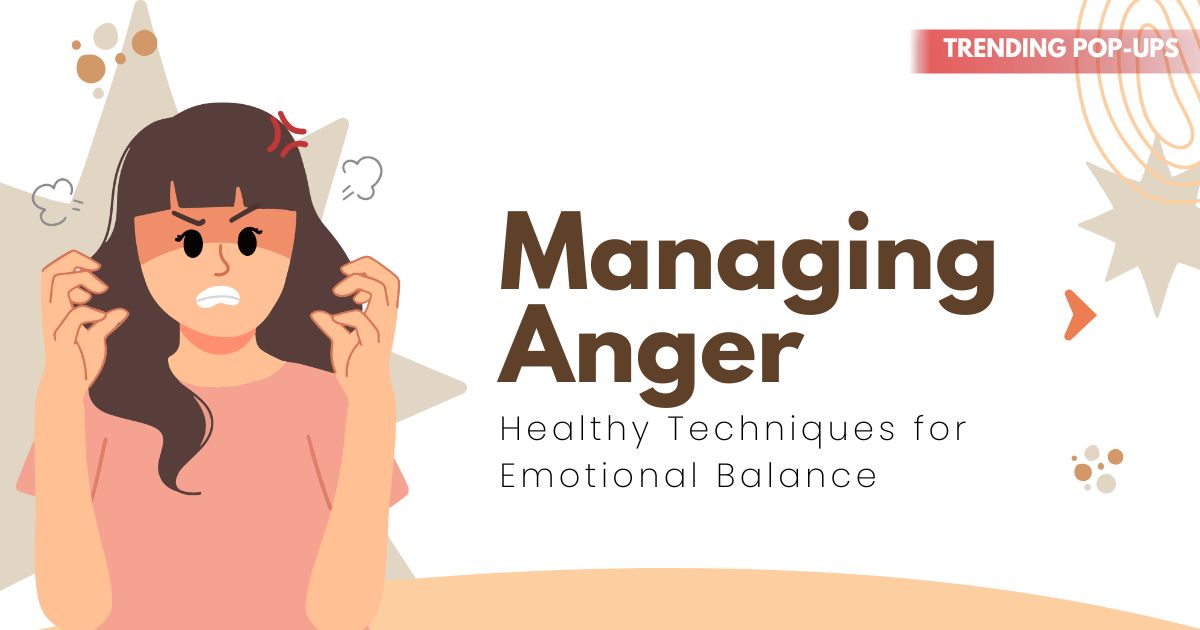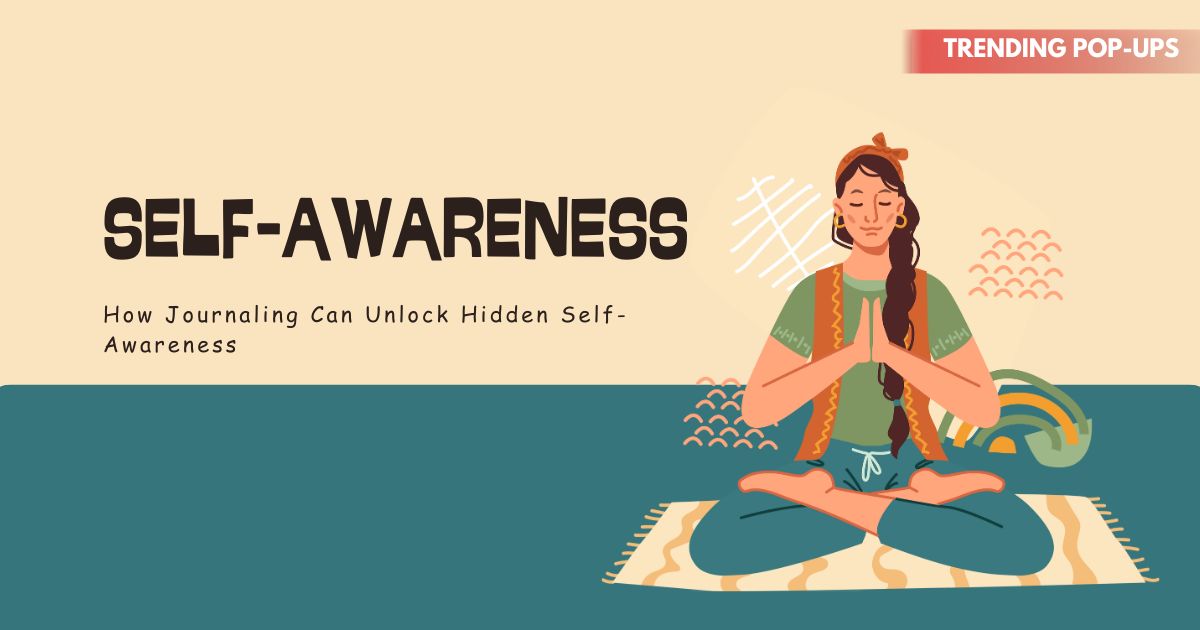Anger is a natural human emotion that everyone experiences. While occasional frustration is normal, uncontrolled anger can harm relationships, decision-making, and overall health. When expressed in unhealthy ways, anger can lead to regret, conflict, and even long-term mental and physical consequences. The good news is that anger can be managed through healthy techniques that promote emotional balance and wellbeing.
This article explores the causes of anger, its impact on health, and practical strategies to manage it constructively.
Understanding Anger
Anger is an emotional response to perceived threats, injustices, or frustrations. It triggers a fight-or-flight response, increasing adrenaline and cortisol levels. While anger can sometimes motivate positive change, unmanaged anger often leads to destructive behavior.
Recognizing the signs of anger—such as a racing heart, clenched fists, or irritability—is the first step in learning to manage it effectively.
The Impact of Uncontrolled Anger on Health
Unchecked anger doesn’t just affect mood; it also harms physical and mental health. Some common consequences include:
-
Increased risk of high blood pressure and heart disease
-
Weakened immune system
-
Sleep disturbances
-
Anxiety and depression
-
Strained personal and professional relationships
Managing anger with healthy techniques helps prevent these long-term issues while promoting emotional stability.
1. Practice Deep Breathing
When anger builds up, the body reacts physically. Deep breathing is one of the quickest and simplest ways to calm down.
-
Inhale slowly through the nose, hold for a few seconds, then exhale through the mouth.
-
Repeat for several minutes until the body feels more relaxed.
-
Pair deep breathing with visualization, such as imagining a calm place.
This technique reduces tension and helps regain control of emotions.
2. Take a Timeout
Stepping away from a triggering situation prevents escalation. A short break allows emotions to cool down before responding.
-
Walk away for a few minutes when tempers rise.
-
Engage in a calming activity, like listening to music or stretching.
-
Return to the situation with a clearer, calmer perspective.
Timeouts are especially effective in preventing arguments from spiraling out of control.
3. Use Physical Activity as an Outlet
Exercise releases endorphins, which naturally reduce stress and anger. Channeling frustration into movement can help release pent-up energy.
-
Go for a brisk walk or run.
-
Try boxing, yoga, or strength training.
-
Use exercise breaks during the day to stay balanced.
Regular physical activity not only reduces anger but also promotes long-term mental wellbeing.
4. Identify Triggers and Patterns
Keeping track of situations that spark anger helps with prevention. By identifying triggers, individuals can prepare healthier responses.
-
Maintain an anger journal to record situations and reactions.
-
Notice recurring themes, such as traffic, deadlines, or misunderstandings.
-
Develop strategies to handle these triggers before they escalate.
Awareness is key to managing emotional reactions more effectively.
5. Practice Mindfulness and Relaxation
Mindfulness helps individuals stay grounded in the present moment, reducing impulsive reactions. Relaxation techniques lower stress levels and promote inner calm.
-
Try meditation or progressive muscle relaxation.
-
Practice mindfulness exercises, such as focusing on breathing.
-
Use calming affirmations to shift negative thoughts into positive ones.
These practices encourage emotional balance and better control over anger.
6. Communicate Assertively, Not Aggressively
Expressing anger doesn’t mean lashing out—it means communicating respectfully and clearly. Assertive communication helps resolve conflicts without hostility.
-
Use “I” statements instead of blame (e.g., “I feel frustrated when…”).
-
Listen actively to others’ perspectives.
-
Keep a calm, steady tone of voice.
Assertiveness promotes understanding while preventing unnecessary conflict.
7. Reframe Your Thoughts
Negative thought patterns can intensify anger. Reframing helps individuals view situations differently.
-
Replace “This is unfair” with “This is challenging, but I can handle it.”
-
Avoid generalizations like “You always…” or “You never…”
-
Focus on problem-solving instead of dwelling on blame.
Cognitive reframing changes perspective, making it easier to respond rationally.
8. Seek Professional Support When Needed
If anger feels overwhelming or uncontrollable, seeking help from a therapist or counselor is a wise step.
-
Cognitive-behavioral therapy (CBT) helps identify thought patterns.
-
Anger management programs teach coping skills.
-
Support groups provide encouragement and shared experiences.
Professional support ensures long-term success in managing anger healthily.
9. Build Healthy Lifestyle Habits
Daily habits play a major role in emotional regulation. A healthy body supports a calmer mind.
-
Get adequate sleep each night.
-
Maintain a balanced diet to stabilize mood.
-
Limit caffeine and alcohol, which can intensify anger.
-
Practice hobbies or creative outlets to relieve stress.
Consistency in lifestyle choices strengthens emotional resilience.
Conclusion
Anger is a normal human emotion, but when unmanaged, it can harm health, relationships, and overall wellbeing. By practicing deep breathing, using timeouts, staying active, and adopting mindfulness, individuals can manage anger constructively. Assertive communication, reframing thoughts, and healthy lifestyle habits further strengthen emotional balance.
Ultimately, managing anger is about turning frustration into positive action and self-control. With consistent practice, it’s possible to transform anger from a destructive force into a motivator for growth and healthier relationships.
Also Read : How to Handle Negative Thoughts Effectively – Proven Techniques for Mental Clarity
FAQs
Q1. Can anger ever be healthy?
Yes. Anger can be healthy when it motivates positive change, provided it is expressed constructively.
Q2. What is the quickest way to calm down when angry?
Deep breathing, stepping away, or counting to ten are quick techniques to regain control.
Q3. How can I prevent anger from affecting my relationships?
Communicate assertively, listen actively, and take breaks when emotions run high.
Q4. Does exercise really help reduce anger?
Yes. Physical activity releases endorphins, which reduce stress and anger levels.
Q5. When should I seek professional help for anger?
If anger feels uncontrollable, leads to aggression, or negatively impacts daily life, professional support is recommended.


